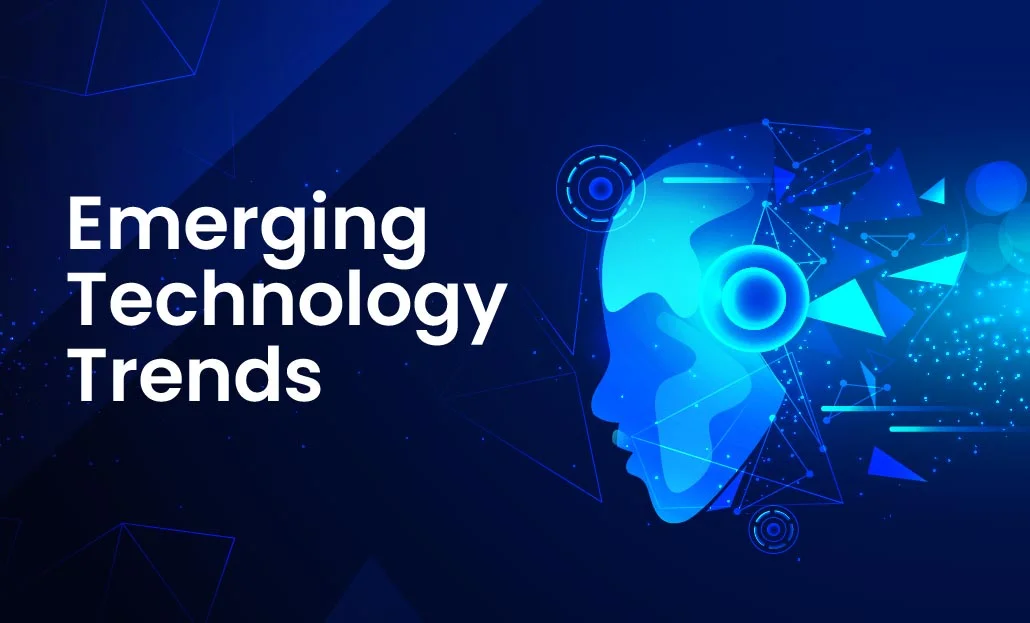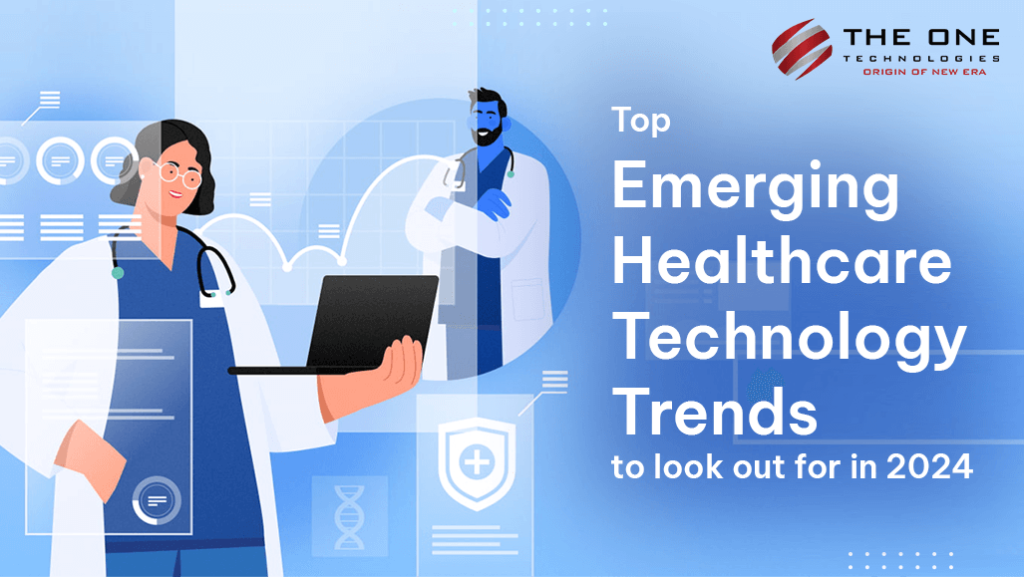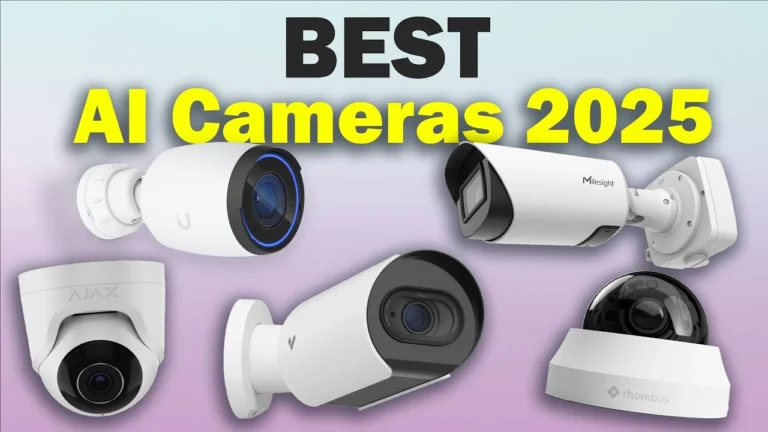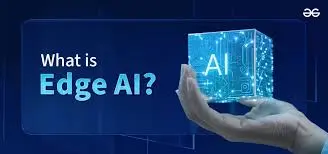13 Game-Changing New Emerging Technologies
Emerging Technologies has become an essential part of everyday life, evolving rapidly and affecting all sectors, from healthcare and education to environmental management. The pace of innovation is faster than ever, with new technologies reshaping both personal and professional experiences. For individuals and organizations, staying updated on advancements is critical to understanding how these changes can benefit and impact various aspects of life. Whether it’s AI-driven convenience or the precision of medical devices, technology is uniquely suited to address modern challenges in diverse ways.
Emerging technologies are transforming industries by introducing groundbreaking solutions to long-standing problems. Mobile applications streamline personal tasks, and machine learning algorithms analyze data in real-time, propelling industries into new realms of efficiency. Key innovations like IoT, blockchain, and 3D printing play central roles in this transformation, offering tangible solutions that improve productivity and enhance user experiences across sectors.
Recognizing the importance of these advancements provides valuable context for understanding how they apply in fields like healthcare, sustainability, and more. Today’s technologies are not merely tools—they drive change, continually adapting to meet evolving needs. Through exploring these emerging technologies, readers can gain insights into the trends and developments shaping the future of work, life, and social interaction.
Emerging Technologies Reshaping Industries
Emerging technologies are setting the foundation for future innovations that will profoundly impact society. Fields like renewable energy and artificial intelligence (AI) are developing groundbreaking solutions to address pressing issues, from climate change to global healthcare accessibility. Rather than offering incremental improvements, these advancements represent revolutionary approaches that redefine problem-solving across industries. With smart devices and IoT solutions, cities are evolving into more efficient and interconnected spaces, optimizing resources and reducing waste.
Smart city emerging technologies relies on interconnected systems that use real-time data to enhance urban living. Cities worldwide are implementing intelligent transportation, energy-efficient buildings, and waste management networks to improve quality of life. These advancements make cities more sustainable and responsive, reflecting a shift toward urban emerging technologies that meets the challenges of urbanization. Smart tech is creating a blueprint for future urban environments focused on minimizing environmental impact.
In addition to urban planning, augmented reality (AR) and virtual reality (VR) are reshaping how people learn, shop, and access healthcare. AR and VR are integral to education, retail, and therapy, providing immersive, interactive experiences that traditional methods cannot match. As these emerging technologies become increasingly accessible, their impact expands, offering new ways to engage, educate, and connect people across sectors.
Advances in Battery Technology
Battery technology is advancing rapidly, with innovations that meet the demand for longer-lasting, faster-charging, and sustainable energy sources. Traditional lithium-ion batteries remain essential, but new developments like solid-state and lithium-sulfur batteries offer further improvements. These advancements are particularly crucial for electric vehicles and renewable energy storage, where efficiency and safety are paramount.
Solid-state batteries, using solid instead of liquid electrolytes, offer enhanced stability and energy retention compared to lithium-ion models. This improvement reduces the risk of leaks and fires, making solid-state batteries safer for various applications. As solid-state emerging technologies becomes commercially viable, it is expected to spur further innovation in electric vehicles by addressing range and charging time, essential for widespread EV adoption.
Lithium-sulfur batteries provide a lightweight and cost-effective alternative with a higher theoretical energy density than lithium-ion models. This makes them promising for industries where weight and cost efficiency are priorities, such as aviation and consumer electronics. As stability and production costs improve, lithium-sulfur batteries may become standard in next-gen tech products, offering enhanced energy solutions for diverse applications.
AI: Revolutionizing Industries with Intelligence
Artificial intelligence (AI) continues to make strides, driving productivity, efficiency, and innovation. AI encompasses machine learning and deep learning, allowing systems to analyze massive datasets and identify patterns that streamline processes across sectors. In finance, healthcare, and logistics, AI-powered insights provide information previously unattainable without extensive human input.
In healthcare, AI transforms diagnostics by making disease detection faster and more cost-effective. Machine learning algorithms analyze medical images to detect abnormalities with remarkable accuracy, improving early detection and potentially easing healthcare professionals’ workloads. This ultimately enhances healthcare accessibility and efficiency.
Despite AI’s benefits, ethical concerns—particularly around privacy and bias—remain significant. As AI becomes more integrated into daily life, transparency and responsibility are essential. Ensuring that AI solutions are fair, ethical, and unbiased is vital for building public trust and enabling AI to fulfill its transformative potential.
Apple Satellite Technology and Global Connectivity
Apple’s recent venture into satellite technology is expanding global connectivity. By integrating satellite capabilities into their devices, Apple enables emergency messaging in remote locations where cellular networks may not reach. This innovation reflects Apple’s commitment to user safety and accessibility, allowing communication even in emergencies.
Satellite technology in consumer electronics offers connectivity in underserved areas, helping bridge communication gaps. Apple’s satellite integration represents a shift in telecommunications and provides remote or rural areas with enhanced capabilities, which can be crucial in emergencies like natural disasters.
Apple’s satellite efforts also highlight the potential for new business models in tech, including real-time navigation, data collection, and personalized connectivity options. As other companies explore similar technologies, satellite connectivity may become a standard feature in high-end devices, enhancing safety and accessibility globally.
New Emerging Technologies in Health and Medical Fields
The healthcare industry is undergoing major advancements, with emerging technologies that make medical services more accessible and efficient. Telemedicine, for example, enables remote consultations, saving time and resources and reaching patients who might otherwise lack healthcare access. This innovation has proven invaluable in rural areas and times when in-person visits are not feasible.
Wearable health devices are changing how people monitor their health. Fitness trackers and smartwatches provide real-time data on heart rate, blood pressure, and oxygen levels, empowering users to proactively manage their health. These tools encourage preventive care by providing insights that allow for early detection of potential health issues.
A groundbreaking advancement in healthcare technology is genetic editing, which could lead to cures for diseases previously considered incurable. Techniques like CRISPR allow scientists to target and modify specific genes, offering hope for treating genetic disorders. While ethical considerations remain, genetic editing holds promise for personalized medicine, allowing for treatments tailored to an individual’s genetic profile.
Computing Power: Quantum Technology and ARM Processors
Computing is evolving rapidly, with breakthroughs that push the boundaries of what computers can accomplish. Quantum computing is a major breakthrough, enabling complex calculations at unprecedented speeds. This technology has enormous potential in fields that require extensive data analysis, including cryptography, climate modeling, and pharmaceutical development.
ARM-based processors have also gained popularity for their energy efficiency, ideal for mobile devices and even desktops. These processors enable thinner, lighter, and longer-lasting devices, catering to a mobile-driven world. ARM technology exemplifies the demand for efficient solutions that support both personal and professional applications.
Advances in computer memory, such as high-bandwidth memory and 3D NAND, are enhancing data storage and retrieval. These improvements enable faster access, larger storage capacities, and smoother multitasking. With these capabilities, computers can better handle resource-intensive tasks, from gaming and video editing to scientific research and AI.
Sustainable Tech Trends and 5G Connectivity
Sustainability is increasingly influencing tech trends, with a focus on environmental responsibility. Emerging Technologies that reduce carbon emissions, like electric vehicles and renewable energy solutions, are gaining traction. This shift highlights the importance of eco-friendly innovations as businesses and consumers seek to minimize their environmental impact.
The rollout of 5G and 6G networks is transforming device communication, creating faster and more reliable connections. These advancements support the expansion of IoT, smart cities, and autonomous vehicles, resulting in a connected world where devices interact seamlessly. High-speed networks will continue to reshape industries, improving efficiency and user experience.
Space exploration is also resurging, with public and private investments in new missions and emerging technologies. From lunar bases to Mars exploration, space technology is advancing human understanding of the universe. The technologies developed for space exploration inspire progress across various fields on Earth, further driving innovation.
What makes a technology “game-changing”?
A technology is called game-changing when it significantly impacts industries, daily life, or society. It introduces new capabilities, revolutionizes processes, or drastically improves efficiency, setting it apart from existing solutions.
Why is it important to follow emerging technologies?
Keeping up with emerging technologies is crucial for understanding future trends, staying competitive, and adapting to new ways of life and work. It helps businesses innovate, supports career growth, and enables individuals to prepare for upcoming changes.
How long does it take for emerging technologies to reach mainstream use?
The timeline varies. Some technologies, like smartphones, quickly gain mass adoption, while others, like advanced AI, may take years to integrate fully into daily life and industries.
Are there risks in adopting new technologies early?
Yes, early adoption may involve higher costs, potential bugs, and the chance a technology won’t gain widespread use. However, early adopters often gain competitive advantages and can influence the development of these technologies.
How can I stay updated on the latest emerging technologies?
Follow reputable tech news sources, industry reports, tech conferences, and online communities. Staying informed helps identify which emerging technologies are becoming popular and how they can impact various fields.
Are emerging technologies only relevant to tech companies?
No. Emerging technologies benefit all sectors, from healthcare and education to finance and agriculture. They help improve efficiency, provide new services, and solve unique challenges across industries.
How do emerging technologies affect jobs and the job market?
Emerging technologies create new job roles and skill requirements while sometimes replacing traditional jobs. Adapting by learning new skills can help individuals stay competitive in a rapidly changing job market.
What role does AI play in emerging technologies?
AI powers many emerging technologies by enabling data analysis, automation, and decision-making. Its applications span from healthcare diagnostics to autonomous vehicles, significantly enhancing various innovations.
Are there ethical issues with emerging technologies?
Yes, new technologies often raise ethical concerns, particularly in data privacy, environmental impact, and equitable access. Developing responsible standards and regulations is key to balancing innovation with ethical considerations.
Can emerging technologies help fight climate change?
Many emerging technologies aim to reduce environmental impact, such as renewable energy, carbon capture, and sustainable farming techniques. While not a complete solution, they contribute to addressing climate challenges.
How do businesses decide which new technologies to adopt?
Businesses evaluate potential ROI, compatibility with current systems, and alignment with their goals. Pilot testing and risk assessment also help decide whether an emerging technology is worth adopting.
Do governments regulate emerging technologies?
Yes, governments regulate technologies to ensure safety, protect privacy, and set ethical standards. However, because technologies evolve quickly, regulations often need updating to keep up with these advancements.
Can small businesses benefit from emerging technologies?
Absolutely. Emerging technologies provide affordable tools that improve productivity, marketing, and customer service, helping small businesses compete more effectively with larger companies.














